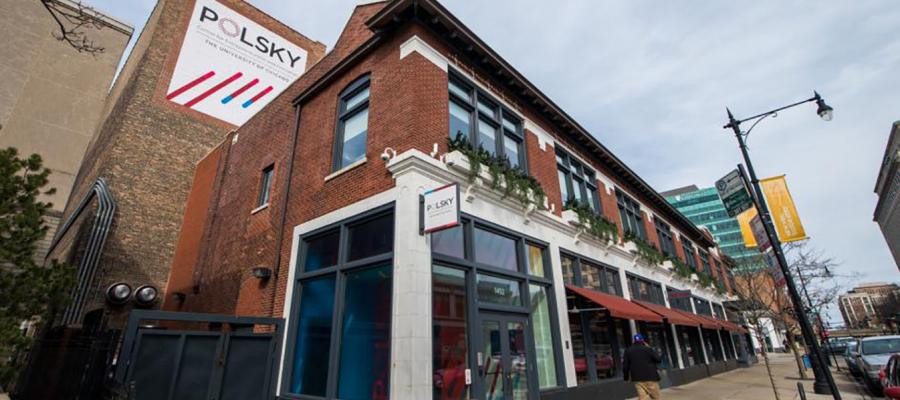On Tuesday, the University announced a $100 million investment in initiatives to support low-income students.
The University received a $50 million donation from billionaire Silicon Valley venture capitalist Sir Michael Moritz and his wife, writer Harriet Heyman (A.M. ’72). Moritz and Heyman challenged the University to raise an additional $50 million over the next five years.
The gift and challenge come as part of a $350 million investment by the University in its Odyssey Scholarship Program, which aims to reduce the burden of student loans and work-study requirements for under-resourced enrolled students, according to the University’s News Office. The program also provides Odyssey students with career advancement and study abroad support.
The donation will also go toward expanding the Office of Civic Engagement’s Collegiate Scholars Program to 40 percent more students. The program prepares Chicago Public School (CPS) students in grades 10-12, predominantly from lower-income backgrounds, to attend top colleges and universities across the country by allowing them to enroll in summer classes at the University and providing them with mentoring. Approximately half of the program’s 479 alumni ultimately attended UChicago.
Moritz, chairman of Sequoia Capital and former board member at Google, said his background inspired his contributions to education. He grew up in Wales during the 1970s and attended a school with many other low-income children. He depended on scholarships to further his education and immigrated to the United States, where he received his M.B.A. from the Wharton School of the University of Pennsylvania.
“Growing up in Wales made you understand what being an outsider is like,” reads his biography on Sequoia’s website. “I wouldn’t be here today if not for the generosity of strangers.”
Moritz announced in a statement on May 21, 2012 that he would step down from some of his duties at Sequoia after having been diagnosed with a rare, incurable medical condition. Since then, he and his wife have devoted their economic resources to philanthropy, making donations totaling hundreds of millions to the University of California at San Francisco, the Juilliard School, the University of Oxford, and now the University of Chicago.
“In the next five to 10 years the quality of my life is quite likely to decline…for me life has assumed a different meaning, and I am making some adjustments,” he said in the 2012 statement.
Since leaving her role as an editor at the New York Times, Heyman has worked with her husband to use their financial resources to make college more accessible to low-income students. Heyman, who grew up in the South Shore neighborhood on Chicago’s South Side and attended a CPS school, says she was fortunate to be able to attend the University of Chicago.
“Coming of age during the Depression, my parents didn’t go to college. It meant a lot to them that I was able to get a good education. At that time, public schools provided a great foundation. And my parents, like many middle-class families then, could afford to send me to college. That is hardly the case for students from low-income families. We want to do what we can to reduce economic barriers for outstanding students equipped with grit and tenacity, which will serve them well in a demanding milieu like UChicago,” Heyman said in a statement.
When planning their most recent philanthropic effort, the couple was impressed by the success of the Odyssey program, which started with a 2007 donation of $100 million from an anonymous donor who only identified himself as Homer. “Homer” challenged the University to raise an additional $150 million to endow the program. The University has since received more than 10,000 individual donations, according to the University’s News Office.
On February 1, weeks before the donation’s public announcement, the University invited its Odyssey Scholars to a campus-wide event, co-hosted by President Zimmer and Dean Boyer on Wednesday, February 17 at Mandel Hall. The email invitation described the event as a celebration of the Odyssey Scholarship program.
“As an Odyssey Scholar, you are proof of what talented students can achieve when we work to dismantle barriers to higher education,” Dean Boyer said in the email.
The event, attended by Moritz, featured a conversation centered on the recent donation. Director of the Urban Education institute, Sara Stoelinga (A.B. ’95, A.M. ’01, Ph.D. ’04), moderated the event, which featured three panelists: former U.S. Secretary of Education Arne Duncan (Lab ’96), Chief of Networks for Chicago Public Schools Elizabeth Kirby (A.M. ’00), and former principal of Kenwood Academy, a CPS school, Vincent Tinto (Ph.D. ’71).
The panelists expressed gratitude for Moritz and Heyward’s donation and stressed the importance of supporting low-income students at both K–12 schools and colleges and Universities. They also discussed and took audience questions about the school-to-prison pipeline, retention of low-income students, moving top faculty to low-income schools, and the ramifications of eliminating federal considerations of federal aid applicants’ criminal records.
“[The Collegiate Scholars Program] is the University thinking very unselfishly that we have this extraordinary talent across Chicago. They can’t all come to the University of Chicago, but they can go to good colleges and be successful. So that’s the University reaching down; it’s K–12 reaching up. Meeting in the middle—there’s real power there,” former Secretary of Education Arne Duncan said.
The Socioeconomic Diversity Alliance (SDA) said that it is happy the University has more funds to support its low-income students, but wants more information about its specific allocation of the funds, according to SDA leader Stephanie Diaz. Diaz also expressed disappointment that an event that was initially pitched as a celebration of Odyssey Scholars seemed to be focused instead on the new donation.









